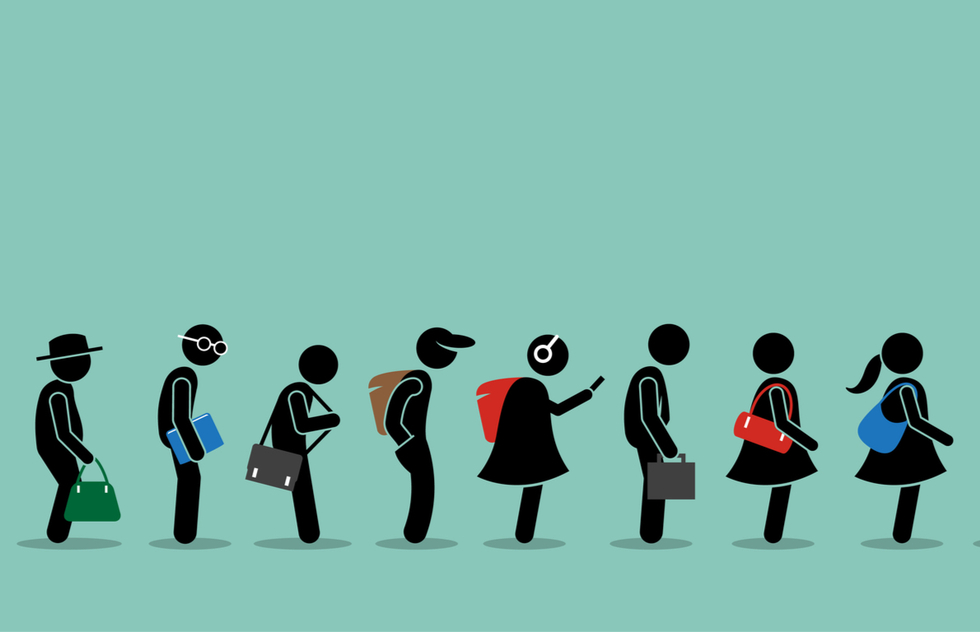As a society, we're still coping with a once-in-a-century trauma—and several of us aren't handling the stress well.
Some travelers are snapping, losing their marbles in the worst way, attacking flight attendants, turning standard mask requests into unnecessary aircraft-grounding Spartacus moments, or merely lashing out with the kind of snide nastiness that doesn't make the news but still demoralizes employees just trying to do their jobs.
Several airlines have sworn off alcohol sales for the summer explicitly to avoid encouraging such violent and antisocial behavior.
Real talk: Don't be a jerk. It's not possible for travel to return to normal yet, so we must be patient and handle our frustrations well.
Although the travel industry has put on its prettiest makeup and a smile, nothing right now is the way it was. Places that never used to require much advance booking—national parks, rental car offices, home rentals, theme parks—are being swamped by an influx of demand and now require careful early planning. That adds a thick layer of unexpected stress to our lives at a moment when our anxious souls crave leisure and relaxation on a cellular level.
Often, pandemic measures cause bottlenecks. Inside theme parks, where temporary social distancing procedures are hampering speed, guests are reporting waits of 30 to 90 minutes just to get lunch. At Walt Disney World in Florida, app-based food reservations and telephoned questions may require waits surpassing an hour (or two).
Elsewhere, the benign neglect of poorly designed organizations has come home to roost.
The acting head of the Transportation Security Administration (TSA) has warned that security screening personnel are in short supply at 131 airports across the United States. Low pay and dismal morale have caused worker retention problems at the TSA for years, and the uncertainty of the pandemic seems to have finally pushed many screeners out.
The TSA workforce isn't projected to return to normal levels until September at the earliest. Meanwhile, airports are warning passengers to arrive two to three hours early for flights.
As for the airlines, wait times for their call centers can be as long as three hours and beyond.
USA Today reported wait times as long as eight and a half hours from Delta Air Lines. A central problem, according to the newspaper, is that many companies laid off or granted early retirement to workers during the depths of the pandemic, and now customer service departments are straining to train new experts.
National parks, tourist towns like Key West and Myrtle Beach, and seasonal destinations have all traditionally relied on an influx of international workers—a labor source that isn't available this year.
Other workers are eager to return but are still unable to sort out essential needs such as child care. The daycare industry crashed during the pandemic, many schools remain closed, and advocates are calling for a national, government-led effort to ensure kids have somewhere to go so their parents can return to work.
Still other former service workers are using this moment to transform their vocational lives. Low-wage hourly employees in the hospitality industry were dumped at the first sign of trouble when the pandemic began, and now, understandably, those workers are unwilling to return to jobs that offer such weak benefits and protections.
American workers in the travel industry have complained of mistreatment and unfair wages for decades. For many, being thrown off the payroll by Covid-19 proved to be a breaking point. Now employees are seeking higher wages and more job security outside of hospitality.
For the first time in years, business owners in the travel and service sectors find themselves in the position of having to improve conditions for workers in order to compete. On an industry panel this week, David Kong, the CEO of BWH Hotel Group, told his audience that in an effort to remain competitive in the job market, "wages have already gone up tremendously, and I expect that to continue."
Kong certainly has an incentive and the means—he also announced his properties were setting all-time records for revenue per room.
It all adds up to good news for worker quality of life (and, consequently, better service) in the long run, but, in the meantime, this summer will be a trying one for travelers.
If you plan to go anywhere during this early phase of the recovery, adjust your expectations to match the reality of 2021, not the bygone days of 2019. Society is undergoing a transformation.
Plan way ahead. Arrive super early. Expect some long waits while the economy learns how to accommodate everyone. Keep in mind that all of us—on both sides of the service counter—wish things were easier, but we have to get through this moment first.
Most of all, be kind. Remember that we've all been through hell. We're not just traveling to our favorite destinations again—we're on our way to a better system. And that takes thoughtfulness and patience.






